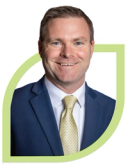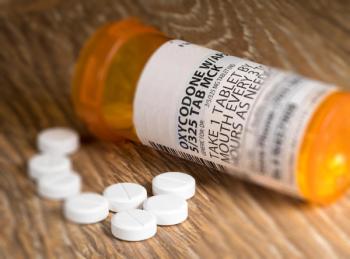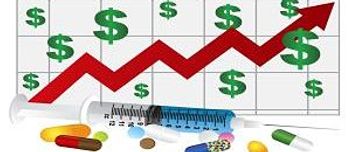
Troy Trygstad, PharmD, PhD, MBA, gives the facts and fiction of CBD.

Troy Trygstad, PharmD, PhD, MBA, is the executive director of CPESN USA, a clinically integrated network of more than 3500 participating pharmacies. He received his PharmD and MBA degrees from Drake University and a PhD in pharmaceutical outcomes and policy from the University of North Carolina. He has recently served on the board of directors for the Pharmacy Quality Alliance and the American Pharmacists Association Foundation. He also proudly practiced in community pharmacies across the state of North Carolina for 17 years.

Troy Trygstad, PharmD, PhD, MBA, gives the facts and fiction of CBD.

Tight job market? Trying to figure out how you can get an edge? Reading up on your therapeutics and management guru books? Well, it turns out that none of those should be your focus—at least for getting a job.

Shouldn’t we rethink pharmacy benefits and the role of the pharmacist when it comes to these products?

They have become more important in health care delivery yet represent a smaller portion of the bill.

The Iowa Pharmacists Association makes it a focus of the ride to stop to visit with smalltown pharmacies and local hospital pharmacists to highlight their presence and importance in their communities.

Sign me up for a services contract with a better patient outcomes bonus payment.

Freddie Mercury’s Father’s Reference to One of the Core Zoroaster Religious Maxims Reinforces the Idea of Doing the Right Thing, and Worldly Rewards Will Follow

Potential actions related to the opioid epidemic and pharmacist provider status are on the horizon.

I have had the privilege over the past nearly 2 decades to work with a great team of experts at Community Care of North Carolina and its more than 2000 affiliated practices in community-based care delivery and the patient-centered medical home movement.

The most common strains of influenza start to emerge in epidemics a full 6 to 9 months ahead of European and North American outbreaks

Every year Pharmacy Times® partners with Parata Systems and sponsors the Next-Generation Pharmacist Awards.


Last month, CNBC reported that Amazon is backing off plans for large-scale drug distribution and had been struggling to do business with hospitals.

On March 12, 2018, the New England Journal of Medicine published a cluster-randomized trial of an intervention by pharmacists who were operating under collaborative practice agreements to initiate, titrate, monitor, and otherwise manage drug therapy for non-Latino African American men in barbershops.

Over the past decade, physician employment has skyrocketed, with small-business primary care clinics being gobbled up at staggering rates by large corporations.

Generic drug products are an essential component to our health care system.

Prescriber and pharmacist attitudes toward patient adherence can be an important factor in the patient–provider relationship.

Should a person who is not exposed to education about the dangers of CNS-active medications and driving be thought of as irresponsible?

Third-party payers in the pharmacy arena came along in the 1970s as a means by which a patient’s medications could be covered.

At more than 260 million users strong, nearly 9 of every 10 Americans use OTC medications on a regular basis.

I’ve written a number of articles over the past few months and years about the unstoppable, unwavering, and now accelerating march toward value-driven care and payment reform.

For more than a half-century now, we’ve been debating who should pay for health care: patients, consumers, employers, taxpayers, or charities?

Pharmacy benefit managers play an important and necessary role within our private system of health care.

Lifelock is an identity protection firm that promotes itself as being able to reduce the risk of identity theft or fix it after it occurs.

It was with great fanfare that Amazon announced early last month that it had made its first drone delivery from its Cambridge, England, facility. I thought it interesting that the Wall Street Journal’s article about the launch of the service used medication delivery as an exemplar to highlight the advantages of drone delivery not once, but twice.

It’s now been just over a month since the completion of one of the more unforeseen elections cycles in the history of the United States. For political junkies, the exit polls and final vote tallies provided a number of insights about the mood of America.

The Advisory Board Company is a research, technology, and consulting firm with longstanding and deep relationships in Washington, DC.

It’s an exciting time for the profession of pharmacy, with diversity of opportunity continuing to grow dramatically as our health care system redesigns itself, slowly but surely moving from a system engineered for “sick care” encounters and mechanical throughput to one oriented toward health improvement and outcomes-based value.

It seems that just about every month now, there is another public outcry in response to a new innovator product that is priced well above convention or to a dramatic price hike for a product that has been in the marketplace for years.

For the past decade, health economists and policy makers have frequently espoused the following axiom: bending the cost curve will enable a sustainable health care system.